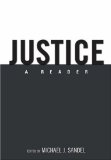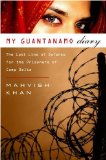Summary | Excerpt | Reviews | Beyond the book | Read-Alikes | Genres & Themes | Author Bio

Defending American Values from a President Run Amok
by Glenn GreenwaldFrom the book jacket:
Glenn Greenwald was not a political man. Not
liberal, not conservative. Politicians were
all the same and it didn’t matter which
party was in power. Extremists on both ends
canceled each other out, and the United
States would essentially remain forever
centrist. Or so he thought.
Then came September 11, 2001. Greenwald’s
disinterest in politics was replaced by
patriotism, and he supported the war in
Afghanistan. He also gave President Bush the
benefit of the doubt over his decision to
invade Iraq. But, as he saw Americans and
others being disappeared, jailed and
tortured, without charges or legal
representation, he began to worry. And when
he learned his president had seized the
power to spy on American citizens on
American soil, without the oversight
required by law, he could stand no more. At
the heart of these actions, Greenwald saw
unprecedented and extremist theories of
presidential power, theories that flout the
Constitution and make President Bush
accountable to no one, and no law.
If we are to remain a constitutional
republic, Greenwald writes, we cannot abide
radical theories of executive power, which
are transforming the very core of our
national character, and moving us from
democracy toward despotism. This is not
hyperbole. This is the crisis all
Americans—liberals and conservatives--now
face.
In the spirit of the colonists who once
mustered the strength to denounce a king,
Greenwald invites us to consider: How would
a patriot act today?
Comment: Like Greenwald, I have never
embraced partisan politics, and even if I
was to, BookBrowse is not my personal soap
box - so when I first heard of How Would
A Patriot Act? I assumed it was going to
be just another political diatribe which
would be unsuitable for BookBrowse - but on
reading it, I found something quite
different. Clearly and concisely, Greenwald
lays out the ways in which the Bush
administration is blatantly operating
outside the law in areas such as illegal
eavesdropping, locking up citizens without
due process, declaring war without the
consent of congress and muzzling the media;
and asks why the American people allow this
to continue. His conclusion is that we are
being governed in large part by fear.
Take for example the issue of illegal
eavesdropping. I've followed the
eavesdropping debate somewhat in the New
York Times but had somehow missed the
fundamental point which is that between
1978, when the Foreign Intelligence
Surveillance Act (FISA) was passed requiring
court approval for all surveillance of
citizens, and 2001 (when Bush first ordered
eavesdropping outside the law), the
government submitted more than 13,000
requests to the FISA court - and the court
approved every single one! There's even a
provision in the law that allows for
surveillance for 72 hours without a court
order. So why, when Carter, Reagan and Bush
Sr. managed to fight the Cold War without
apparently ever violating FISA (or even
claiming that a change to the law was
required) has the Bush administration felt
it necessary to operate outside the law? If
they felt the law was inadequate the
appropriate response is to get it changed
but they have made no attempt to do that -
they've simply chosen to ignore it.
Left wing groups are embracing Greenwald as
their own and right wing groups accuse him
of selling out. However, it really does seem
that Greenwald is genuinely non-partisan -
he does not criticize Republicans or, for
that matter, praise the Democrats - his
focus is simply on an administration that he
sees as operating in clear contradiction of,
not only America's laws, but also the core
values that define America. Whatever your
political persuasion, this book is worth a
second glance - Davina.
![]() This review
first ran in the June 15, 2006
issue of BookBrowse Recommends.
This review
first ran in the June 15, 2006
issue of BookBrowse Recommends.

If you liked How Would A Patriot Act?, try these:

by Michael J. Sandel
Published 2010
Michael J. Sandel's "Justice" course is one of the most popular and influential at Harvard. Up to a thousand students pack the campus theater to hear Sandel relate the big questions of political philosophy to the most vexing issues of the day. Justice offers readers the same exhilarating journey that captivates Harvard students.

by Mahvish Khan
Published 2009
Outraged that her country was illegally imprisoning people at Guantanamo, Mahvish Khan volunteered to translate for the prisoners. Her story is a challenging, brave, and essential test of who she is —and who we are.
Your guide toexceptional books
BookBrowse seeks out and recommends the best in contemporary fiction and nonfiction—books that not only engage and entertain but also deepen our understanding of ourselves and the world around us.